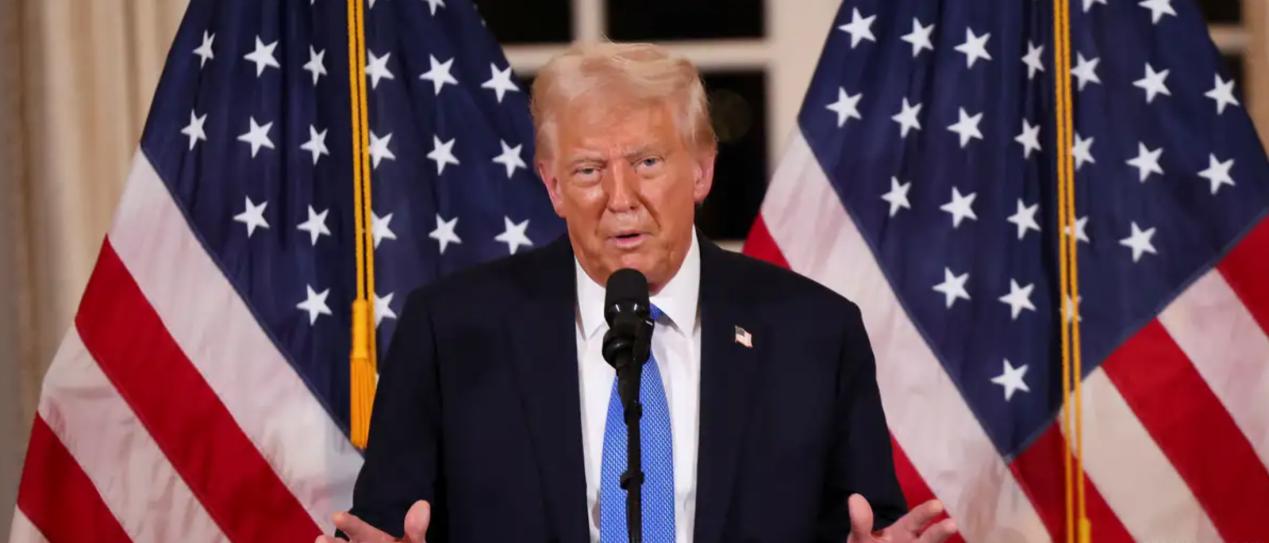
On February 10, 2025, US President Trump once again signed an executive order, announcing a 25% tariff on all steel and aluminum products imported to the United States, and explicitly stating that there would be "no exceptions or exemptions" to this policy. This decision not only drew widespread attention from the international community but also sparked numerous discussions within the United States.
Since taking office, Trump has consistently made trade protectionism a core part of his economic policy. During his first term, Trump imposed tariffs of 25% and 10% respectively on imported steel and aluminum products under the pretext of safeguarding "national security". This move escalated global trade tensions at the time, leading to dissatisfaction from multiple countries and international organizations towards the United States. However, the Trump administration did not curb its actions; instead, it continued to implement a series of trade protectionist measures, attempting to protect domestic industries by reducing imports.
The reasons behind Trump's decision to impose tariffs on steel and aluminum products once again are as follows:
1. Protecting domestic industries: The steel and aluminum industries are crucial foundational sectors in the United States, holding significant importance for national security and economic development. The Trump administration believes that the influx of foreign products has severely impacted the US steel and aluminum industries, leading to domestic industry contraction and job losses. Therefore, imposing tariffs to restrict imports is seen as an effective means to protect domestic industries.
2. Trade negotiation leverage: The Trump administration has always regarded trade negotiations as a key component of its foreign policy. By imposing tariffs, the Trump administration aims to gain a more advantageous position in trade negotiations with other countries, thereby forcing them to make concessions.
3.Political considerations: The Trump administration is under immense pressure from domestic steel and aluminum industry stakeholders. These interest groups have been demanding that the government adopt stricter trade protection measures to safeguard their interests. To cater to these demands, the Trump administration chose to impose tariffs once again.
The impact of Trump's recent tariffs on steel and aluminum products is multi-faceted:
On the one hand, it can protect domestic industries: By restricting imports, it can effectively protect domestic steel and aluminum industries from the impact of foreign products, thereby maintaining the stability and healthy development of domestic industries. Increase employment: With the development of domestic steel and aluminum industries, it will drive employment growth in related industries and create more job opportunities for the United States.
On the other hand, it will also have a series of negative impacts:
1. Escalation of trade tensions: Trump's tariff policy has further escalated global trade tensions. Other countries may take retaliatory measures, such as imposing tariffs on US products or taking other trade barrier measures, thereby damaging the export interests of the United States.
2. Cost increase: Steel and aluminum are important raw materials for many industrial products. With the increase in tariffs, the production costs of these products will rise, thereby affecting the profitability of the entire industrial chain.
3. Damage to consumer interests: The increase in tariffs will lead to higher prices for imported steel and aluminum products, which in turn will push up the prices of related products. This is an unfavorable factor for consumers, as they will have to bear higher costs.
In addition, Trump's trade policy also faces numerous challenges from both domestic and international sources. Domestically, Trump's trade policy has already sparked dissatisfaction among some businesses and consumers; internationally, Trump's trade policy has also faced criticism and condemnation from other countries and international organizations. Therefore, the Trump administration needs to carefully weigh the pros and cons and formulate more reasonable and feasible trade policies to address future challenges.

Below is the English translation of the text, with precise handling of political terms, consistent sentence structures, and preservation of the original’s analytical tone and logical flow:
Below is the English translation of the text, with precise …
On December 15 local time, Trump took the British Broadcast…
In recent years, the application of artificial intelligence…
According to Yahoo US media reports, the recent remarks of …
After 11 years of waiting in the deep sea, we finally have …
On December 17, 2025, the newly renovated American "Preside…